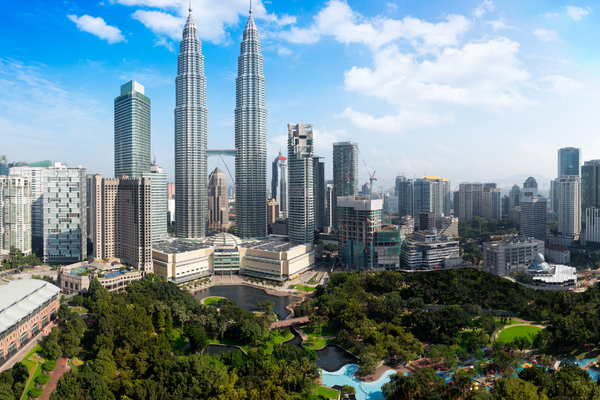With the increasing urgency of the climate crisis, it is all the more important to ensure our country is adequately equipped to handle its impacts and reduce its causes. This is especially true for the urban lens, which ongoing climate change policy cannot afford to ignore, given that Malaysia is increasingly urbanised. Building resilient cities — cities that can absorb, recover and prepare for climate-related shocks and promote sustainable development — is vital towards creating a climate resilient Malaysia.
In REFSA’s latest research brief, researcher Kieran Li Nair investigates the ways in which climate change affects Malaysian cities, and how sustainable urbanisation measures which take on a whole-of-society approach can enhance the resilience of our cities.
Sustainable urbanisation, in ensuring the long term viability of cities as well as enhancing the wellbeing of both cities and its inhabitants, aims to address equitable economic development, social progress and environmental responsibility. The challenges Malaysian cities face as a result of climate change can generally be broken down into temperature rises and extreme weather. The former contribute towards the urban heat island effect as well as sea level rises for coastal cities, while the latter is responsible for catastrophic flooding and related natural disasters. In addressing these challenges, special care must be taken towards the most socio-economically vulnerable communities, since they are disproportionately affected.
Kieran stressed that “To rationalise and complement its myriad existing climate action plans, Malaysia’s strategies for honing resilient cities should be formulated from the three basic frameworks of climate mitigation, climate adaptation, and financialisation.”
Recommendations for climate mitigation strategies:
- Resilience planning for new development or infrastructure projects by using risk assessment frameworks, as well as administering green rating systems/certification. In order to maximise the effectiveness of the latter, green rating systems should be standardised across the country, development projects should undergo regular re-assessments to ensure quality, and personnel and developers should be properly trained and incentivised to administer these indexes.
- Renewable energy such as solar should be further stimulated and made accessible for homeowners and urban developers.
Recommendations for climate adaptation strategies:
- Retrofitting existing infrastructure in a pragmatic approach, to ensure that it can handle evolving climate conditions. This ranges from utilising nature-based solutions, such as sponge cities, improving infrastructure to support sustainable mobility, etc.
- Implementing resilience infrastructure, which includes the removal of existing bottlenecks as a short-term flood mitigation, improve disaster planning and mitigation mechanisms, as well as disaster financing.
- Capacity building and community resilience, i.e. ensuring communities are able to support themselves against the impacts of climate change from the ground level. For disasters and emergencies, emergency action plans which enable community action must be preemptively formulated before disasters and emergencies strike. Local governments should also be empowered, as they would be able to best determine shortcomings, ensure accountability, and offload responsibilities from larger authorities to focus on more major problems.
Lastly, recommendations for the financialisation of Malaysia’s green strategies:
- Carbon taxes and a related carbon pricing mechanism, for which feasibility studies are already ongoing. The newly appointed government should seize the momentum and aim for decisive progress in this area.
- Voluntary carbon market and internal carbon pricing, with the former being developed and recently launched by BNM, and the latter being a practice adopted by companies such as Sunway Group Bhd that should be encouraged among companies with the capacity to do so.
- Other financial methods and incentives, this includes green bonds (including the sustainability sukuk), green tax schemes and reductions, assistance from international climate finance instruments to bring adaptation and mitigation plans to life.
All in all, ambitious, thorough and actionable plans are needed to ensure not only that Malaysia will meet its climate targets, such as becoming a carbon neutral nation by 2050, but more importantly to secure the long term sustainability of its cities and their population.
Featured on MySinchew and New Straits Times on 20th February, 2023.
Featured on PreventionWeb.

